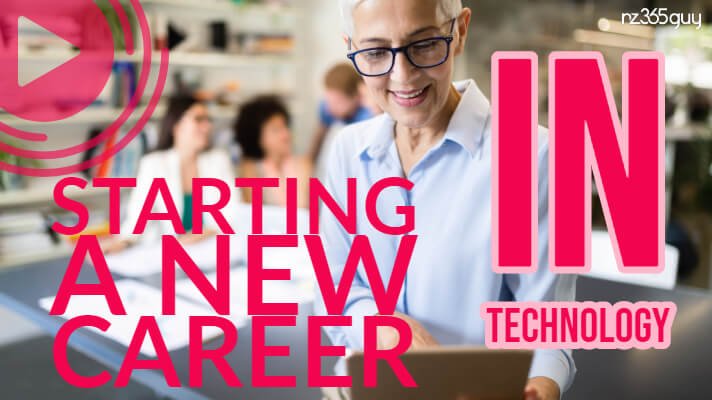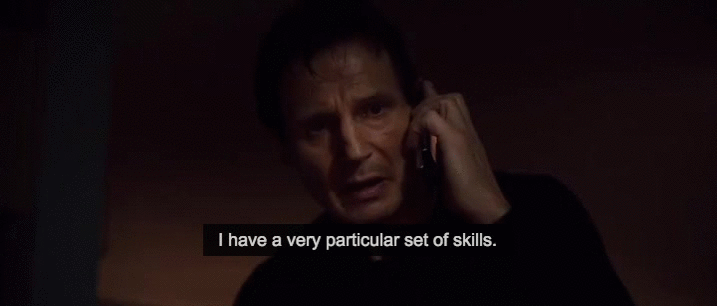Starting a New Career in Microsoft Business Applications
Is it time to consider your future and make sure your chosen career is full of opportunities for advancement?
In September 1999 I officially started working in Information Technology (IT), after a year of learning a broad range of software skills at New Horizons Computer Learning Centre in Auckland, New Zealand. How did I get to that point?
Previously to this role I was working in clean air systems for Hospitals, Universities and Pharmaceutical manufacturing companies. In the late 1990s I was aware of the rise of the internet and that IT was taking off, opening up many opportunities for people wanting to change careers.
A lot of the work we did at New Horizons was helping people move away from labor-intensive roles such as mechanics and trades, as well as office workers, accountants, schoolteachers and nurses and switch careers into IT.
Here we are in 2019, some 20 years later, and if we look forward to the future, we can see that Artificial Intelligence (AI) and the use of software in every part of our lives and businesses is going to continue to increase at an accelerated pace.
You may be asking yourself how can I have a piece of that action? Do you want to change up your skills and shift from whatever role you are into what is next?
Skills in software are in high demand all over the world. There will be continued growth in software applications with high demand in every industry for the foreseeable future.
So if you want to get into a career that will not be replaced anytime soon, it may be the right time for you to consider re-skilling as a technologist, someone that understands software and how it can be practically used to address problems not only in business but society and the universe.
Currently you are a Subject Matter Expert (SME) in the industry you work in. What I mean by this is that you are an expert on your job.
It may be filling out forms a specific way, carrying out checks on systems, following up with customers, working in manufacturing, caring for children or patients and managing staff. All these skills give you insight into the specific processes that are used to carry out your work.
You will have worked out the best way to carry out these activities, so you can do your best work that allows for consistent outcomes. You may have been working for 30-40 years and think this is it, I will be looked over for future growth and re-skilling, but that is not the case, not anymore.
If you have a learn-it-all attitude you can gain the skills for a future of your choice. These new skills are all needed in the new era of the citizen developer. You have the choice if you want to stay doing what you are doing or move into the future of possibilities.
What is this Citizen Developer thing that I am talking about? The term was first coined by Gartner so let's look at their definition of it.
“A citizen developer is a user who creates new business applications for consumption by others using development and runtime environments sanctioned by corporate IT. In the past, end-user application development has typically been limited to single-user or workgroup solutions built with tools like Microsoft Excel and Access. However, today, end users can build departmental, enterprise and even public applicationsusing shared services, fourth-generation language (4GL)-style development platforms and cloud computing services.” – Gartner
Let me interpret this for you. Software such as the Microsoft Power Platform has progressed to the point that people (users – not programmers) can build business applications. So, people with no programming skills can build a software application for business. This opens an incredible amount of opportunities.
In the past if you wanted to create software you needed to either go to university and learn to be a programmer or take a 3-6 month high-intensity course in software development. Often there is a perception of the type of people that fills these roles, yes, I know you have a picture in your mind of that pizza eating geek. However, this is also changing rapidly.
You have skills, how-to skills, soft skills and knowledge that comes from years of working in your specific industry. Skills that have been learned by doing over time.
The best type of skills for a citizen developer, because you know what you do from a practical perspective, not just a theory or an instruction manual. You know the workarounds you do in your job to get the outcomes needed.These skills are the fertile soil that a citizen developer needs, combined with practical training and a personal commitment to as much as you can about the tools that will allow you to transition from your current job into your next career in technology.
This brings us to the Microsoft Power Platform, a suite of software tools crafted for the Citizen Developer. A suite of tools that can be used to build software apps for mobile devices, computers and for that matter almost any hardware platform. A suite of tools created in a way that empowers SMEs to build applications without being a programmer first.
Currently, the tools available are:
In future posts, I will blog about these tools in more detail and the steps you can take to become a technologist and move from your current career to your next career. If you want to get started quickly, comment below and I will see what I can do to help you get started sooner rather than later.
If this post has raised questions for you, please ask below in the comments, or you can connect with me on LinkedIn and ask me privately if you prefer.


